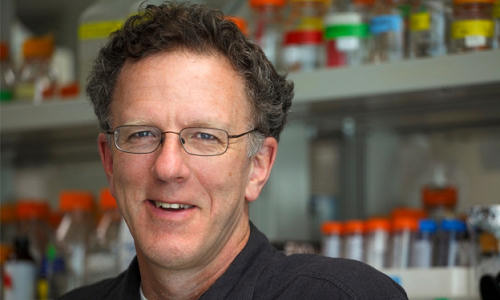In a new study published today in Cell Reports, scientists at the Fred Hutchinson Cancer Research Center demonstrate that mice lacking one copy of a gene called CTCF have abnormal DNA methylation and are markedly predisposed to cancer. CTCF is a very well-studied DNA binding protein that exerts a major influence on the architecture of the human genome, but had not been previously linked to cancer.
Dr. Christopher Kemp
Over 30 years ago, frequent loss of one copy of chromosome 16 was first reported in breast cancer but the gene or genes responsible remained to be identified. Dr. Gala Filippova, staff scientist at Fred Hutch and co-author of the study, originally cloned the human CTCF gene and mapped it to chromosome 16, within the same region that is frequently lost in human cancers. That same year, Dr. Chris Kemp of the Human Biology Division at Fred Hutch, co-authored a paper demonstrating that, in contrast to the predominant “two hit” theory on tumor suppressor genes, it was not necessary to lose both copies, one hit was enough. However, CTCF was ruled out as a candidate breast cancer gene on chromosome 16 simply because it did not conform to the “two hit” model.
“In this current study we explored whether loss of just one copy of the CTCF gene could trigger epigenetic changes and predispose to tumor development,” said Dr. Filippova of Fred Hutch. The study demonstrates that indeed, loss of one copy of CTCF caused large scale epigenetic changes and greatly enhanced tumor formation in multiple tissues. In addition, recent large scale analysis of the human cancer genome revealed that deletions or mutations in CTCF are one of the most common events in breast, endometrial, and other human cancers.
Collectively, these findings indicate that CTCF is major tumor suppressor gene in human cancer and highlights the power of the mouse models to prove that a candidate gene has a function in cancer. These results have implications for understanding the origin of DNA methylation alterations in cancer and suggest that epigenetic instability may both precede and accelerate the emergence of cancer.
“This answers a 30 year riddle in cancer research”, said Dr. Kemp. “And it shows once again, as we first showed in 1998, that one hit is enough”.
Story Source:
The above story is based on materials provided by Fred Hutchinson Cancer Research Center.





